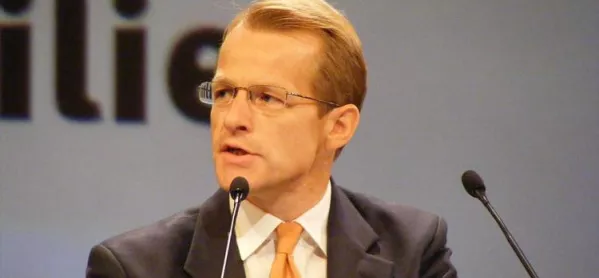Some of the poorest countries in the world are better at evaluating their education policies than the UK, according to a former minister for schools.
David Laws, who is now executive chairman of thinktank the Education Policy Institute, said richer countries often lacked proper accountability when it came to policymaking, meaning “ministers think they know best”.
“The problem…in policymaking in our country - and, interestingly, in the richer world arguably more than the poorer world - is the lack of rigorous, regular evaluation of what government does,” he said.
“The stark nature of this failure to evaluate properly in our country, I think, has been accentuated in my mind by some of what I’ve seen in the international policy space.”
Mr Laws cited the example of Liberia, one of the poorest countries in the world, which spends only $45 million (£35.3m) per year on education, equivalent to about $50 (£39) per pupil. Despite this, when the government implemented a scheme to lift educational standards, it included a $1m (£784,000) randomised control trial from year one to monitor its effectiveness.
“Compare that commitment to evaluation in Liberia, one of the poorest countries in the world, with the fact that it took us probably 14 or 15 years to figure out and to evaluate properly the academies programme in England,” Mr Laws told a conference.
Part of the problem, he said, was the lack of ministerial accountability for spending.
“You have the choice about whether to evaluate [your policies] or not,” he said. “Sometimes you don’t want to because you don’t want the newspapers to trawl over any aspect of failure, as they would inevitably do.”
But Mr Laws also blamed the structure of government, which he said was more interested in issues of implementation than the latest research on what worked in classrooms.
“I can remember almost no occasions in my three years in the Department for Education where I ever had in my red box at the end of the day, or the end of the week, any reporting back of the latest education research,” he said.
“That, of course, feeds a system in which ministers think they know best and aren’t being challenged, and aren’t being invited to look at and reflect upon the evidence.”




